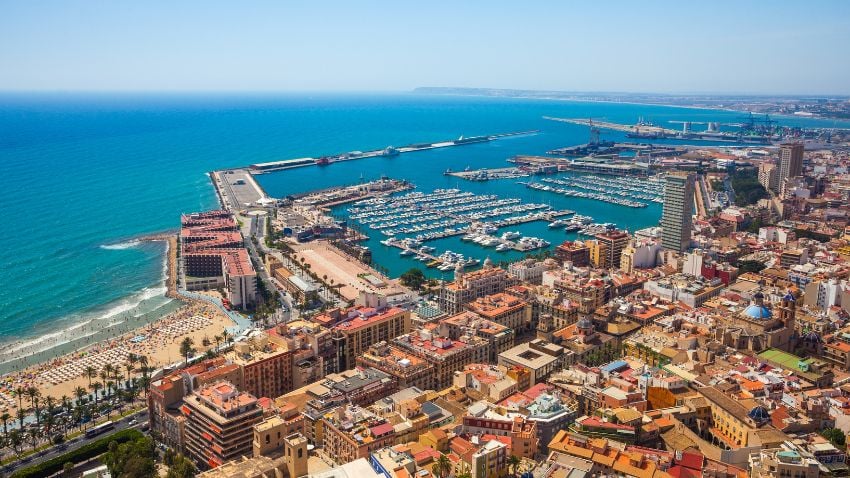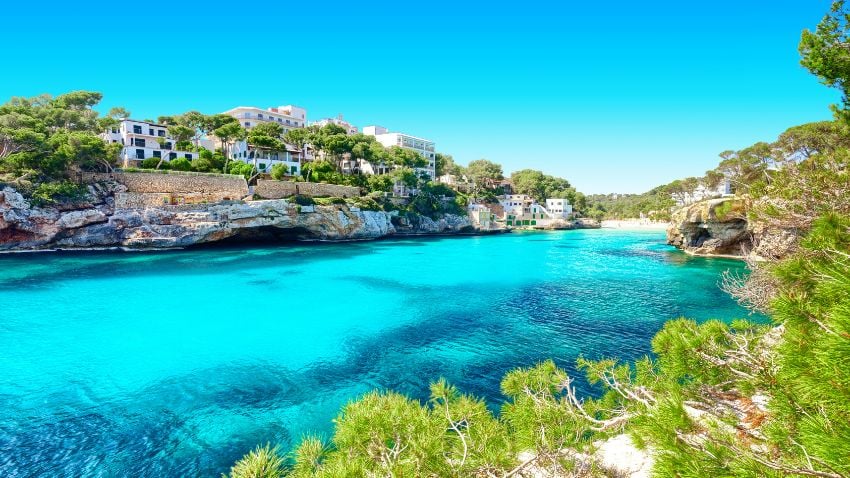Best Cities To Live In Mexico In 2026
Mexico remains one of Latin America’s most compelling destinations, especially for North Americans. More than a million expats call it home, and tens...

4 min read
Like many other countries, Spain offers a path to citizenship for those who can prove their ancestry. This means that if you have a grandparent or great-grandparent born in Spain, you may be eligible to apply for Spanish citizenship.
Obtaining Spanish citizenship through ancestry can come with many benefits. It grants you the right to live and work in Spain without needing a visa. You'll also be able to travel within the European Union without a visa, and you'll be able to vote in Spanish elections.
It's worth noting that while the process of obtaining Spanish citizenship through ancestry can be relatively straightforward, it can also be time-consuming and require a significant amount of documentation. However, for those with strong ties to Spain, the benefits of citizenship may be well worth the effort.

You can live in Barcelona when you get your Spanish citizenship
In order to be eligible to apply for Spanish citizenship through ancestry, you must meet certain criteria. The most important of these is being able to prove your Spanish ancestry. You will need to provide documents showing your connection to a grandparent or great-grandparent born in Spain.
The specific documents required will depend on your individual circumstances. These may include your birth certificate, your parents' and grandparents' birth and marriage certificates, and any other relevant documents that can demonstrate your Spanish ancestry. In some cases, you may need to provide additional documentation, such as a certificate of no criminal record or proof of residence in Spain.
It's also worth noting that different regions in Spain have different rules and requirements for citizenship through ancestry, so it's important to work with a lawyer or a team of people familiar with the process to ensure resources are well-spent.
In addition, there may be a requirement for you to have a certain level of Spanish language proficiency. A knowledge of Spanish culture and history may also be expected, as well as a certain period of legal residence in Spain.
Overall, the eligibility criteria for Spanish citizenship through ancestry can vary depending on the individual case, and it's essential to consult with a lawyer or the Spanish consulate in your country to understand the specific requirements.
Related content: Ireland Citizenship By Ancestry

San Sebastian is great place to visit while in Spain
Once you have determined that you meet the eligibility criteria for Spanish citizenship through ancestry, the next step is to begin the application process. Here is an overview of the steps involved:
It's important to remember that obtaining Spanish citizenship through ancestry can be time-consuming and may take several months or even years to complete. It's also important to note that the application fee may vary depending on the consulate and the applicant's situation.
Related content: The Basics Of How To Get A Second Passport Or A Second Residency

Having some proficiency in Spanish is essential for your naturalization process
After completing the application process and accepting your application, the next step is the naturalization process. This process is meant to help the applicant fully integrate into Spanish society and become a Spanish citizen. Here is an overview of the requirements for naturalization:
If you are not from European Union, you will have to renounce your previous nationality to acquire Spanish citizenship unless you are a citizen of the following countries:
It's worth noting that the naturalization process can take several months or even years to complete. It's also important to note that it is possible to lose your Spanish nationality if you do not reside in Spain for more than two years.

Cala Santanyi, Mallorca, Spain
Obtaining Spanish citizenship through ancestry is a process that can grant many benefits, but it can also be time-consuming and require a significant amount of documentation. It is a multi-step process that includes proving eligibility criteria, submitting an application, passing an interview, and completing the naturalization process.
In summary, obtaining Spanish citizenship can be valuable if you have a strong connection to Spain through your ancestry. It can open up many doors for a living, working, and conducting business in Spain, granting you the right to vote in Spanish elections and travel within the European Union.
If you want the best intel from the expat world, including profitable offshore opportunities, little-known tax-saving strategies, and hard-won insights on immigration, passports, and Plan-B residencies, all delivered to your inbox every single week, then join our daily correspondence, EMS Pulse®. Currently enjoyed by over 84,000 expats and expat-hopefuls worldwide. Fill in the form below to join our newsletter free:

Written by Mikkel Thorup
Mikkel Thorup is the world’s most sought-after expat consultant. He focuses on helping high-net-worth private clients to legally mitigate tax liabilities, obtain a second residency and citizenship, and assemble a portfolio of foreign investments including international real estate, timber plantations, agricultural land and other hard-money tangible assets. Mikkel is the Founder and CEO at Expat Money®, a private consulting firm started in 2017. He hosts the popular weekly podcast, the Expat Money Show, and wrote the definitive #1-Best Selling book Expat Secrets - How To Pay Zero Taxes, Live Overseas And Make Giant Piles Of Money, and his second book: Expats Guide On Moving To Mexico.

Mexico remains one of Latin America’s most compelling destinations, especially for North Americans. More than a million expats call it home, and tens...

South Korea is far more than K-pop and K-dramas. It is a country known for outstanding food, from bustling street markets to high-end dining, as well...

Asia is one of the most fascinating regions in the world for travel, offering an extraordinary mix of cultures, histories, and landscapes. From...